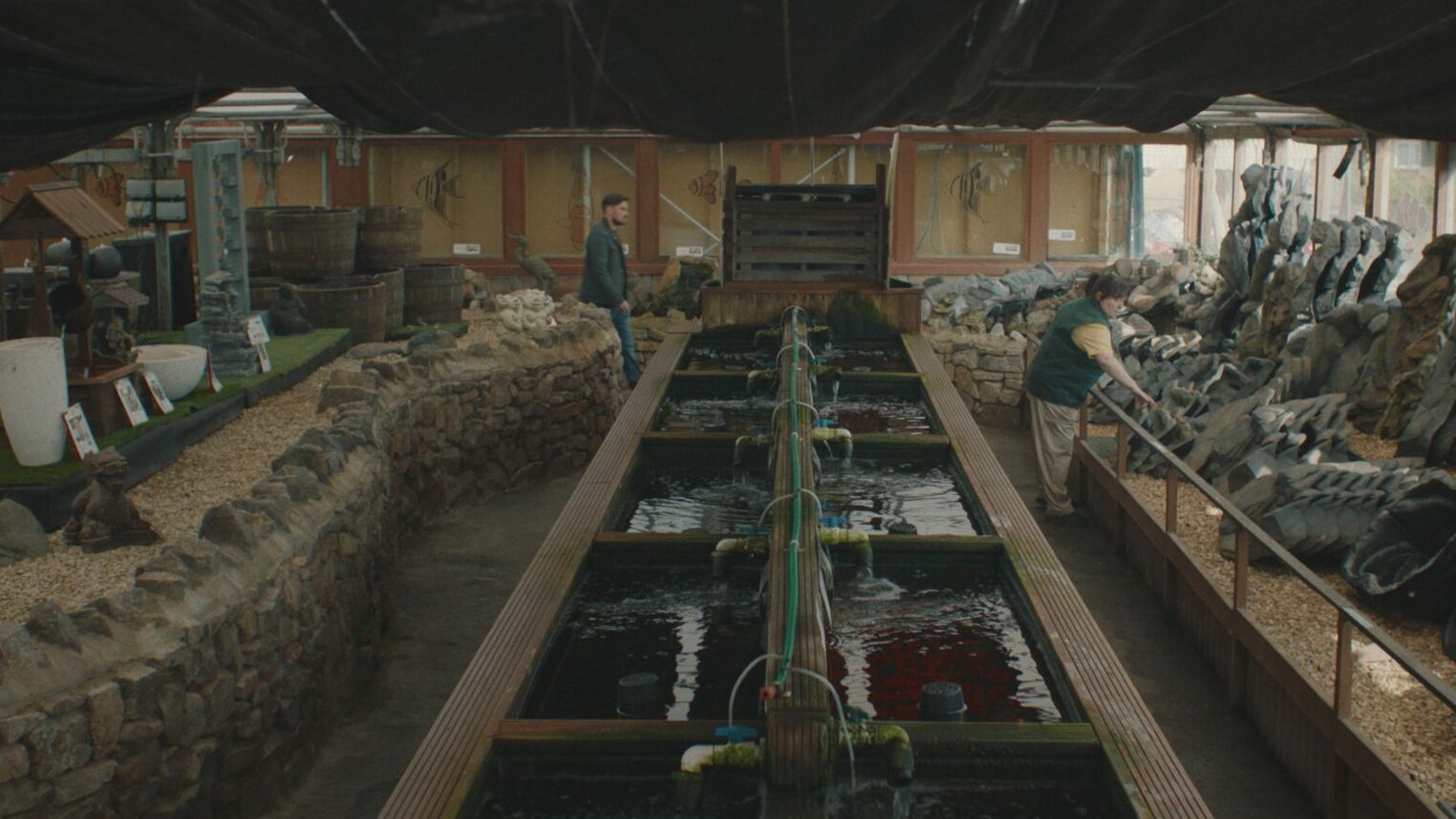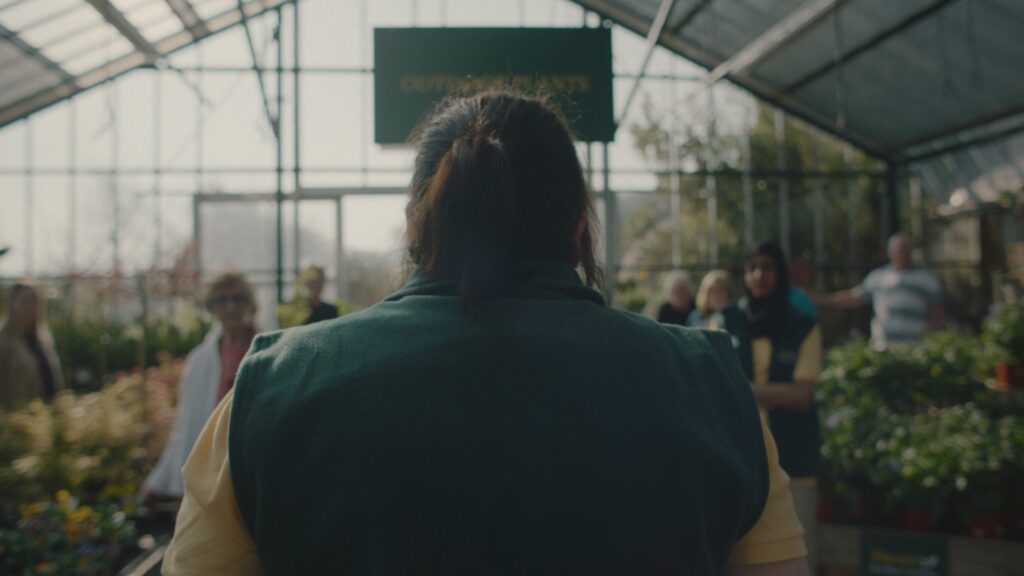Filmmaker Focus: Jo Smyth
Jo Smyth is an editor, director and writer who creates female-led stories that tackle challenging subjects, from sexual violence to coercive relationships. Last year, she screened Smile as part of our Drama Official Selection. The film follows a woman in her 50s navigating the fallout of sexual assault and day-to-day sexism. We caught up with Jo to learn more about the feminist themes of her work, projects she is currently working on and her love for The Exorcist.
ASFF: Could you introduce yourself and give us a rundown of your filmmaking journey so far?
JS: I’m Jo Smyth and I’ve been directing shorts and webseries for a few years now. Smile got into ASFF in 2023, and my latest short horror, Find You Here, is currently doing this year’s festival circuit. My day job is editing drama for television – which I love. This work also allows me to experience the joy of writing and directing independent film alongside it.
ASFF: Which film sparked your love of cinema?
JS: The film that made me want to become a director was The Exorcist. Even though I’d looked at other roles, it was watching that film and then hearing William Freidkin talk about how he created this masterpiece – in the documentary afterwards – that inspired me to become a director. To get a group of talented people together and make something that can move an audience to feel and think about a subject differently is a privilege. There is nothing like that feeling, whether its on set, in the final mix review or sitting in an audience at a film festival waiting for the gasp.
ASFF: What’s a movie you could talk about for hours?
JS: The Exorcist. Or Deliverance – I watched it for the first time about two weeks ago and it is unbelievable.

ASFF: If you could become any character in cinematic history, who would you choose?
JS: I can’t really think of anyone I’d want to “be.” I’m rather happy paddling my own canoe. As small as my contribution to cinema has been so far, I’m okay with my journey and what I’m making.
ASFF: How do you want audiences to feel whilst watching your films?
JS: How I want them to feel depends on the film. Smile is about assault and the systems that support perpetrators and violence against women, and how we as women are forced to navigate those murky waters daily. I wanted audiences to feel my outrage and uncomfortable enough to talk about it. Find You Here is a horror film about coercive control in a same-sex relationship, so naturally I’d love people to feel unsettled but also to come away a little more aware perhaps. I think for me it’s more about wanting to make people think and ask a question either of themselves or the film, to start a conversation about the topics I’m showing them than wanting to make them feel a specific feeling.
ASFF: Which themes do you find yourself gravitating towards in your projects?
JS: Feminist themes, female lead drama and horror are certainly my happy places. I’m driven by a desire to challenge accepted patriarchal norms and look at these through a female lens in order to show a different angle to what we are used to viewing.
ASFF: What’s a film genre you haven’t worked with before but would be interested in trying out?
JS: Psychological thriller for sure is a genre or sub-genre I’d love to try because Silence of the Lambs is one of my all time favourite films.

ASFF: What is one piece of advice you would give to budding filmmakers?
JS: My advice is don’t wait for the industry to give you permission to make films. It is as full of fearful, highly insecure human beings as it is hugely generous talented ones, and you won’t always know the difference. Sometimes the most insecure ones are also the talented ones and that still doesn’t mean you need or should look for their permission. I did and I wasted a lot of time. Your first films will probably be terrible and that’s NORMAL and totally okay – it’s not a reason to stop. Filmmaking is a skill, and very few of us start with the talent and confidence of Scott and Speilberg so keep going if you love it. Don’t wait for your script to be perfect, don’t always listen to notes but don’t always ignore them either. Even if you don’t agree with a note, it is always important to consider it. Try it if you have the time because nine times out of ten times something will come as a result.
ASFF: How has screening at the Aesthetica Short Film Festival impacted you?
JS: Aesthetica is one of my favourite film festivals, so to have Smile screen in York last year alongside BAFTA and Oscar nominated shorts was a real treat. It was also great to meet and chat with other filmmakers, which always fuels my creativity and inspires me to keep on making films.
ASFF: What projects are you working on at the moment?
JS: I’m currently applying for funding for my next short, a folk horror set in Wales, called Trees. I wanted to take the concept of witches, who are often portrayed and objectified as sirens or crones, and reframe the idea from the female perspective. The project tackles subjects of menopause and domestic violence, all framed within the folk horror genre – it’s going to be fun!
Learn more about Jo’s editing work and films.
Watch more incredible films at Aesthetica Short Film Festival 2024, which runs from Wednesday 6 November until Sunday 10 November. Tickets available from mid June 2024.
Learn more: asff.co.uk
Stills:
SMILE (2022), dir. Joanna Smyth
The post Filmmaker Focus: Jo Smyth first appeared on Aesthetica Short Film Festival.
82